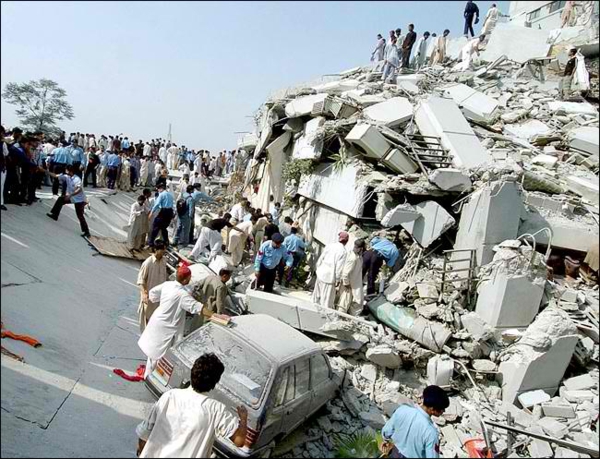If your family does not have a plan in place for a disaster striking, then I recommend you come up with one as soon as possible. I have been involved in the insurance industry for over 16 years now, and have traveled around the world, seeing the results of many disasters.
I have seen firsthand what a horrible storm or fire can do to a family, or even community. This is why I am so passionate about sharing information about what to do in case something happens. If you are prepared, with a plan and supplies, then you have a much better chance at survival.
Your home can be replaced. But, your family cannot. So, if you or your family members are unsure on what to do, read on.
Have a Family Meeting
One of the first things you should do is to plan a family meeting, even young children. Plan it ahead of time, to make sure everyone is available to attend. Let them know what it’s about before it starts. This will give them the opportunity to think of questions, or even do a little research of their own.
Just before starting the meeting, turn off all distractions, such as the television, radio, and cell phones. Sit at the dining room table, so kids are not tempted to start a pillow fight, or play with the toys laying around. It’s important that everyone is paying attention, so they know what to do in the event that something happens.
At the meeting, discuss the possible disasters that could happen, and listen to what your children have to say about it. Next, come up with a plan, where you can hand out responsibilities such as doing a head count and making sure 911 is called. I would keep it simple, so it’s easy to remember.
Also discuss a safe exit. This is especially important in the case of a fire. But, you need to realize that you need multiple options, depending on where the fire breaks out. It’s also a good time to teach your kids the drop and roll technique, staying low in a fire, and not opening hot doors.
Finally, put together a survival kit, and let everyone know where it is, and what is in it. I also recommend emergency kits for cars, as you might be in a car for a while after a disaster strikes. Or, the disaster might have to do with the car, such as getting stranded, or in an accident.
The Types of Disasters
Learn as much as you can about the various disasters that can hit your area. And, touch on others that might not be prevalent in your area, but might occur when traveling. Some of these disasters are:
- Fire
- Hurricane
- Earthquake
- Tornado
- Home Invasion
The more information you have on something, the more powerful you are to take it on. Of course, I don’t mean that in the physical sense of standing up to a storm. But, you should know what you are dealing with, if you don’t want to simply rely on pure luck.
Discuss with each other their thoughts on what to do, and what their fears are for each crisis that might occur. The goal is not to give them nightmares, but rather to instill a little ‘respect’ for a crisis for when and if it does strike.
It might even make for some great family discussions and education about the various reasons why these might happen. For example, preventing fires, the ‘right’ weather elements for a storm, or what causes an earthquake.
Select a Meeting Place
Perhaps equally as important as the survival of the actual disaster, is choosing a meeting place. This is a place that you will all know ahead of time to meet for safety. For example, in case of a fire breaking out, you might want to choose the neighbor’s house…as long as it is not too close to your own. If you don’t have a spot, then you risk a family member running back in to find someone, when they are already safely out of danger.
You might have to choose something a little further away, in the case of a flood, or hurricane. Even though these storms might give an advance warning, sometimes they don’t.
According to FEMA, even without a lot of rain, there is still the possibility of flash floods which can happen very quickly. Flash floods often have a disasterous consequences, with debris and rocks being carried in the heavy rush of water which can sweep away many things in the path. Learn about your area, and how much risk you have for a flash flood.
Or, you might have to choose a spot in the house for a safe gathering. This could be true for a tornado. Find the safest spot in your house, and let everyone know ahead of time where that is. Quite often, it’s the basement, or an interior hallway on the main floor.
The best thing you can do when disaster strikes is to stay together, if possible, because quite often cell phones and other forms of communication will be lost for a while.
It’s also a good plan to have a ‘drill’ now and then, to make sure everyone knows what to do in case of an emergency.
It is best to be prepared and never have to apply it, then to be unprepared and wish you had been.
Through his work in the insurance industry over the past few years, Duncan Morrison has witnessed the destruction in the aftermath of many disasters. He is now dedicated to inform others about the perils of disaster, by teaching them about survival, and sharing information on emergency kits for home and auto on his website www.Itpaystobeprepared.com. When Duncan is not working, he enjoys playing a game of poker, golf, and going to the movies. He resides in Edmonton, with his wife and their pooch Sammy.

